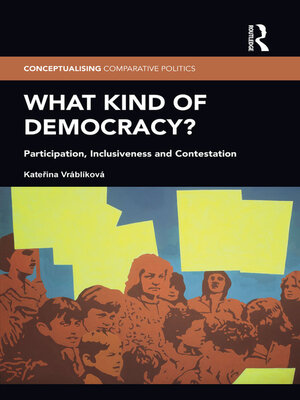What Kind of Democracy?
ebook ∣ Participation, Inclusiveness and Contestation · Conceptualising Comparative Politics
By Kateřina Vráblíková

Sign up to save your library
With an OverDrive account, you can save your favorite libraries for at-a-glance information about availability. Find out more about OverDrive accounts.
Find this title in Libby, the library reading app by OverDrive.



Search for a digital library with this title
Title found at these libraries:
| Library Name | Distance |
|---|---|
| Loading... |
The broad expansion of non-electoral political participation is considered one of the major changes in the nature of democratic citizenship in the 21st century. Most scholars – but also governments, transnational and subnational political institutions, and various foundations – have adopted the notion that contemporary democratic societies need a more politically active citizenry. Yet, contemporary democracies widely differ in the extent to which their citizens get involved in politics beyond voting. Why is political activism other than voting flourishing in the United States, but is less common in Britain and almost non-existent in post-communist countries like Bulgaria? The book shows that the answer does not lie in citizen's predispositions, social capital or institutions of consensual democracy. Instead, the key to understanding cross-country differences in political activism beyond voting rests in democratic structures that combine inclusiveness and contestation.
What Kind of Democracy? is the first book to provide a theoretically driven empirical analysis of how different types of democratic arrangements affect individual participation in non-electoral politics.







